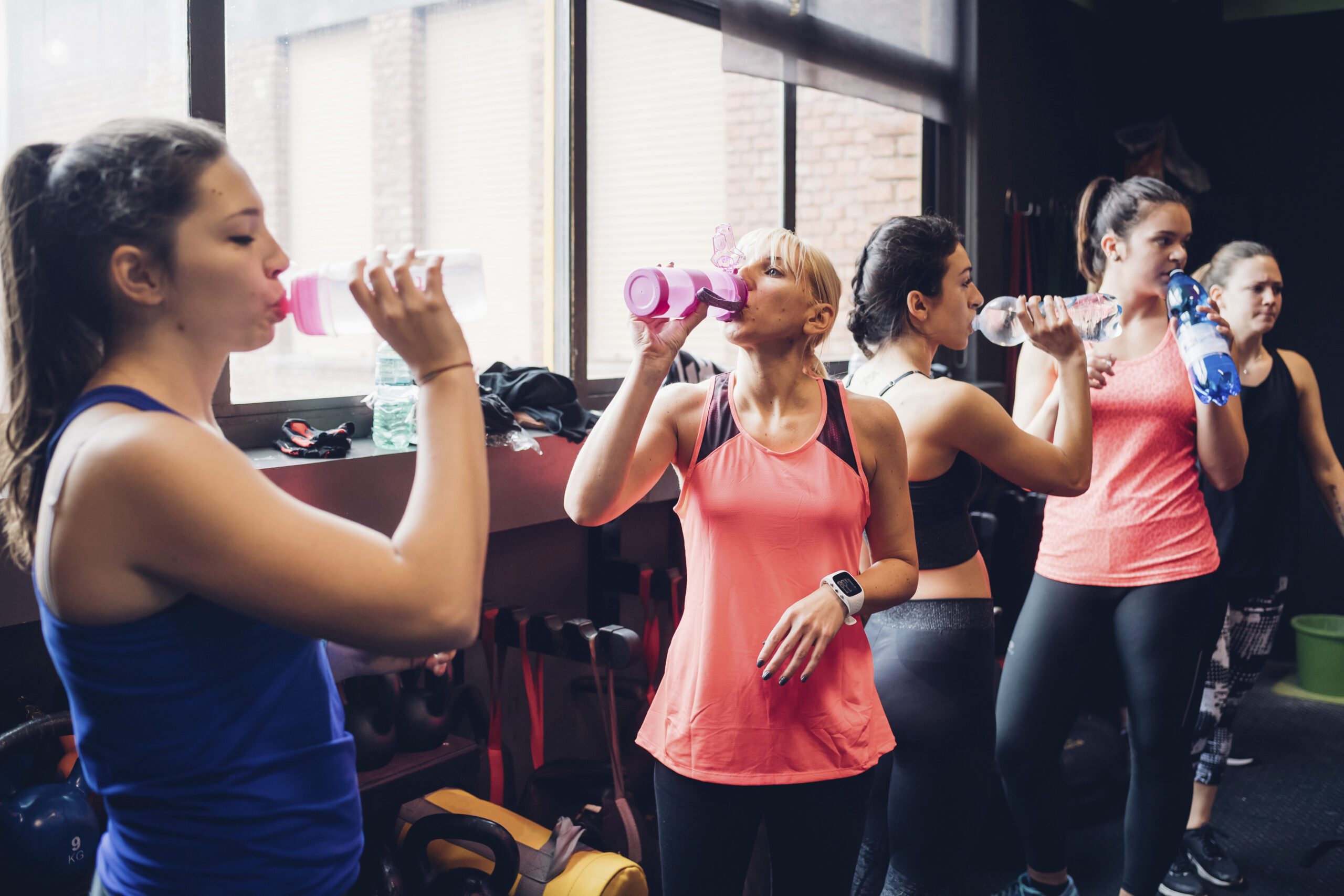At Woodside, we emphasize that hydration is key during the summer months. It’s the season when you spend a lot of time outdoors or working out. Your body’s need for fluids and electrolytes increases significantly, increasing the risk of heat-related illnesses. Not meeting your daily fluid requirements can lead to symptoms such as muscle cramps, excessive sweating, dizziness, headaches and even nausea.
Staying hydrated properly allows your body to function correctly and supports physical performance. Here are five of the best hydration strategies to help maintain your body’s fluid levels. Follow these and enjoy summer workouts without stressing about heat-related issues.
1. Consume Hydrating Foods
When it’s hot out, your hydration levels can deplete quickly. It’s best to eat foods that are rich in water content. There are plenty of great options. Fruits, vegetables and dairy products can compensate for the lost hydration levels you might experience during the summer months. These also provide your body with vitamins and minerals essential for the body’s proper functioning when you engage in intense exercise and workout sessions.
Here are some foods to complement your fluid intake:
Vegetables: Celery, lettuce, tomatoes, zucchini, bell peppers, broccoli, cauliflower, cabbage, carrots, spinach and radish.
Fruits: Watermelon, cucumber, oranges, strawberries, peaches, pineapple, cantaloupe, grapefruit, apples, honeydew melon and raspberries.
Diary: Milk, cottage cheese, plain yogurt and chocolate milk.
2. Avoid Dehydrating Drinks
Certain foods are known to worsen dehydration. Most of them are diuretics, which cause frequent fluid loss. Consuming them during the hot days of summer may interfere with your ability to work out properly. Typically, common dehydrating substances include alcohol, energy drinks, coffee, tea and other sugary drinks that cause rapid fluid loss. Alcohol intake is most likely to increase your urine output, which then leads to fluid loss. Tea and coffee are both caffeinated drinks with diuretic effects, leading to dehydration.
Intake of beverages rich in sugar can pull water from cells, again exacerbating dehydration. As a solution, limit or avoid these during the summer season or consume them in moderation. Just be sure to compensate for the lost fluid by drinking more water to ensure you carry on with your workouts to the best of your ability.
3. Try Infused Water
It’s understandable to be bored by drinking plain water. Sipping on that flavorless water isn’t always appealing. So why not make it more interesting by infusing it with natural flavors? This is not like making homemade soda with sugar. We are talking about making infused water with natural ingredients. Try infusing your water with fruits and herbs like berries, lemon, cucumber, mint or citrus slices. Just be sure not to add any sugar to it.
To level things up even more, you can try unsweetened sparkling water, which adds texture to that boring old plain water. Coconut water and healthy sports drinks are also good options for replenishing lost electrolytes and keeping you energized through tough workouts
4. Follow A Hydration Routine
It can be hard to remember to hydrate regularly, especially if you have a busy daily schedule. For this, it’s essential to build a regular hydration routine. Invest in a reusable water bottle and keep it with you throughout the day. It’s a simple way to remind yourself to drink regularly and stay energized.
Create a hydration routine and link your habitual activities with drinking water. It’s best to plan and follow a structured approach for hydrating before, during and after workouts. For pre-workout hydration, drink 16-20 ounces of water 2-3 hours before your workout. For workout hydration, sip 7-10 ounces of water every 15-20 minutes and take electrolyte-rich options for longer workouts. You can also opt for the infused water we talked about earlier. For post-workout hydration, drink 16-24 ounces of water or a sports drink that helps your body replenish the lost fluids during exercise.
5. Workout At An Ideal Time
Working out early in the morning or later in the evening during the summer season is preferable, as this way you minimize exposure to the hottest parts of the day, which can increase your sweat and fluid loss rate. With this increased sweat loss, you are deprived of much-needed electrolytes your body needs for ample functioning.
This further causes dehydration that is bound to negatively impact your workout performance, keeping you short of reaching your true potential. If it’s hard for you to work out in the morning, aim for evenings before dinner time. Taking these precautions helps you get the most from your workouts without bearing the risk of heat-related stress and problems.
Dehydration can have several adverse effects on your health. Issues you can face range from mild discomfort to even life-threatening complications. Mild to moderate dehydration has symptoms like fatigue, headaches, dizziness and dry mouth. Severe dehydration may result in heat exhaustion or heat stroke, potentially causing seizures, confusion and loss of consciousness. In rare cases, dehydration can also cause a risk of kidney stones, urinary tract infections and other health complications.
To make the most out of this summer, join our health and wellness club, Woodside, and let us create a fitness plan tailored to your unique healthcare and fitness goals. Reach out today and start becoming your best self at Woodside Fitness Club.
